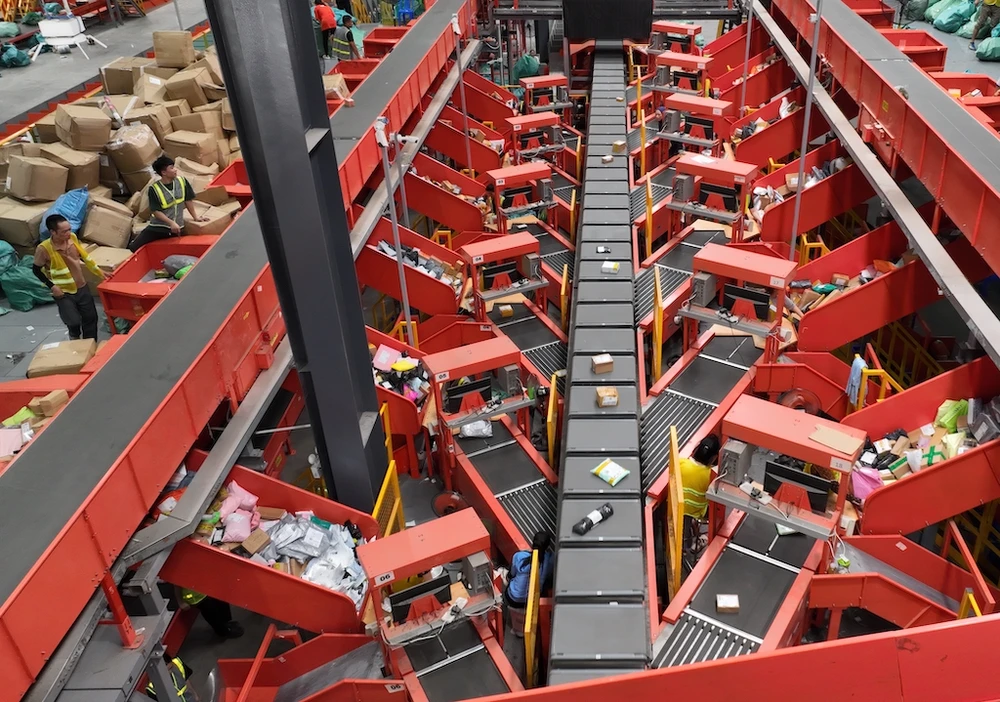This vision is clearly outlined in Prime Minister’s Decision No. 645/QD-TTg, which sets the national e-commerce development plan for 2021–2025. Under the plan, e-commerce is identified as a pioneering sector that leverages digital technology to modernize production systems, reform distribution models, boost business efficiency, and provide a foundation for sustainable export growth.
Creating a favorable environment for e-commerce

To realize these goals, building a comprehensive e-commerce ecosystem - domestically and internationally - from producers to global distribution channels is essential. No single enterprise or organization can tackle all aspects of e-commerce, which span technology, logistics, finance, policy, and access to international markets.
As such, the e-commerce ecosystem must be designed as a multidimensional interactive network, bringing together key stakeholders including government agencies, tech solution providers, export manufacturers, logistics and financial services, consumers, training institutions, and media networks. These components must collaborate, support, and synergize to form a robust system capable of self-regulation and sustainable growth.
Efforts to advance a resilient e-commerce ecosystem are being led by the Department of E-commerce and Digital Economy under the Ministry of Industry and Trade through concrete action programs.
Key priorities include improving the regulatory framework and policy environment, building business capacity through training and SME support programs, developing infrastructure and technologies such as cashless payment systems, smart logistics, and artificial intelligence (AI), as well as enhancing international cooperation and cross-border e-commerce to access and expand into overseas markets.
Looking ahead, the department will continue to implement practical initiatives to further support e-commerce development. One of the standout events will be the Vietnam 2025 Forum on E-commerce and Digital Technology Application, taking place from September 4–6 in Ho Chi Minh City, as part of the Vietnam International Sourcing 2025 exhibition and supply chain connection event.
Elevating Vietnam's e-commerce position globally
This forum is expected to be a crucial platform, gathering experts, policymakers, and e-commerce and digital tech businesses from various countries to share knowledge and define breakthrough solutions for the future of Vietnam’s digital economy. It will focus on four key areas: e-commerce, cross-border e-commerce, e-commerce operations and logistics, digital technology solutions for businesses, and digital financial solutions.
With the support of over 60 Vietnamese trade offices abroad, the event anticipates welcoming more than 300 international business delegations seeking partnerships, import opportunities, and investment connections in Vietnam.
Notably, the forum will enable Vietnamese businesses to directly interact with potential partners in cross-border e-commerce, logistics, and digital technology transfer. The large presence of international buyers and investors promises significant opportunities for Vietnamese firms to expand export markets and strengthen their participation in global supply chains, thereby enhancing competitiveness.
Transforming cross-border e-commerce into a long-term growth driver
According to Bui Huy Hoang, Deputy Director of the Center for E-commerce and Digital Technology Development (eComDX), Department of E-commerce and Digital Economy, the global e-commerce landscape is not just about opening online storefronts but involves a strategic mindset for mastering the digital value chain step by step.
To make cross-border e-commerce a true growth lever, Vietnamese enterprises must adopt a more proactive approach in directly engaging international markets, rather than solely relying on existing platforms. Currently, many Vietnamese companies are still limited to uploading products onto e-commerce platforms without a clear strategy for data management, operations, marketing, and cross-border after-sales service.
From experience with supporting programs, Hoang noted that small and medium-sized businesses entering global e-commerce often struggle with optimizing international logistics, managing multi-market orders, and most importantly, lacking data on consumer behavior by country, region, or market segment. The absence of advanced measurement and analytics tools makes it difficult for them to compete effectively.
Therefore, Hoang emphasized that in today’s rapidly evolving technological landscape, Vietnamese businesses must be supported in developing internal capacity to self-regulate, optimize, and measure the effectiveness of cross-border e-commerce operations - shifting from mere participation to actual ownership and control.
To support exporters, several international e-commerce operators are currently working with eComDX to pilot cross-border e-commerce models, with plans to gradually scale up participation for Vietnamese exporters.
The 2025 E-commerce and Digital Technology Forum will not only be a platform for tech updates and expert dialogue but also an important venue for businesses to explore partnerships, develop solutions, and seek investment from foreign venture capital funds.
Dau Tu